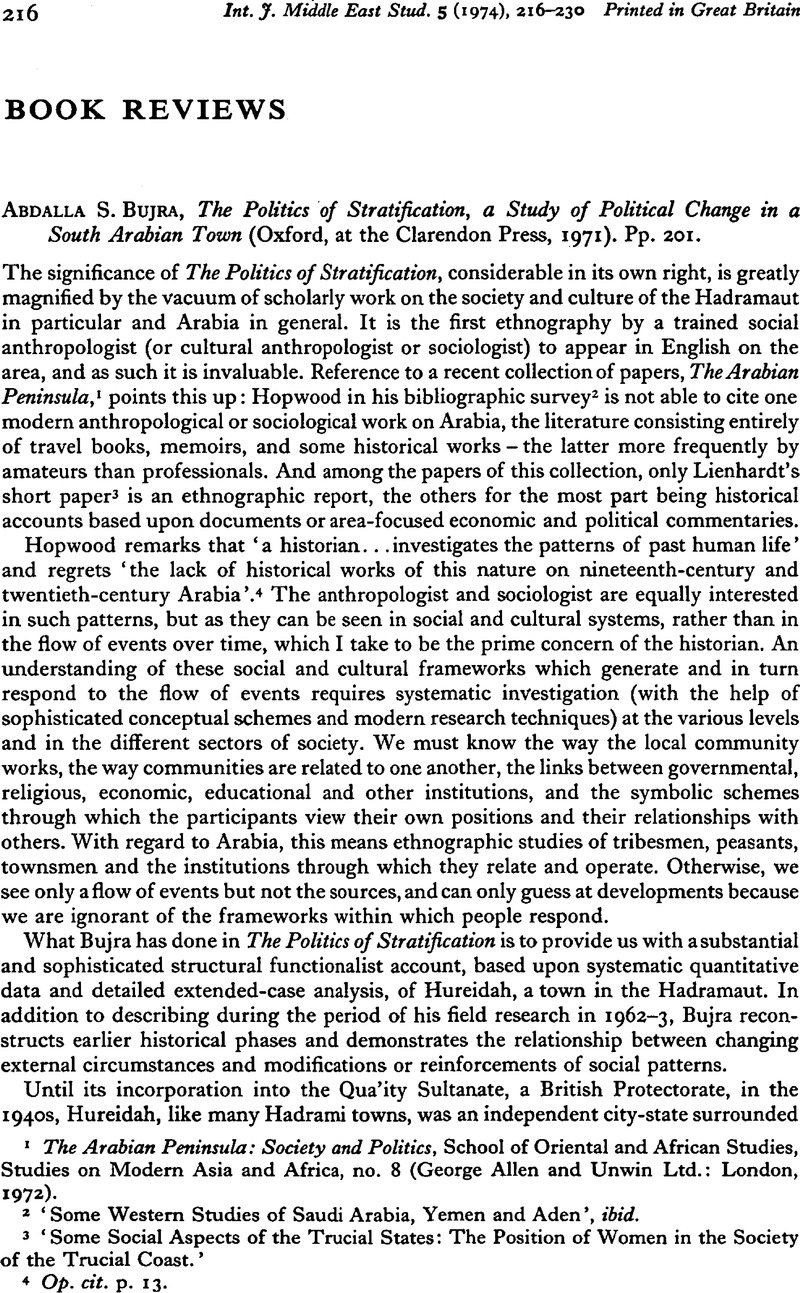No CrossRef data available.
Published online by Cambridge University Press: 29 January 2009

page 216 note 1 The Arabian Peninsula: Society and Politics, School of Oriental and African Studies, Studies on Modern Asia and Africa, no. 8 (George Allen and Unwin Ltd.: London, 1972).
page 216 note 2 ‘Some Western Studies of Saudi Arabia, Yemen and Aden’, ibid.
page 216 note 3 ‘Some Social Aspects of the Trucial States: The Position of Women in the Society of the Trucial Coast’.Google Scholar
page 216 note 4 Op. cit. p. 13.Google Scholar
page 217 note 1 The intermediary position between tribal and agricultural populations is elsewhere likewise associated with high status. For the case of Baluchistan, see Spooner, B. J., ‘Politics, Kinship and Ecology in Southeast Persia’, Ethnology, vol. VIII (1969), pp. 139–52CrossRefGoogle Scholar, and Salzman, P. C., ‘Adaptation and Political Organization in Iranian Baluchistan’, Ethnology, vol. X (1971), pp. 433–44.CrossRefGoogle Scholar
page 217 note 2 This point holds elsewhere in the Middle East. See Fernea, R. on Iraq (Shaykh and Effendi, Harvard University Press, 1970)Google Scholar, Asad, T. on the Sudan (The Kababish Arabs, Hurst: London, 1970)Google Scholar, Goldberg, H. on Israel (Cave Dwellers and Citrus Growers, Cambridge University Press, 1972)Google Scholar, and Salzman, P. C. on Iran (‘Continuity and Change in Baluchi Tribal Leadership’, International Journal of Middle East Studies, forthcoming).Google Scholar